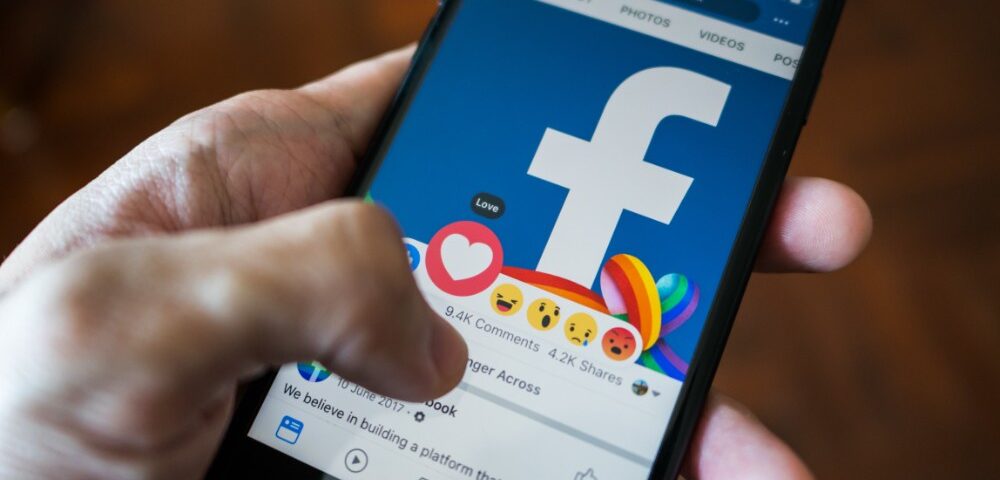
Dual Diagnosis
March 26, 2020
Rebuilding Your Self Identity In Recovery
March 31, 2020Social media is a normal part of daily life for many in the United States; accounts on Facebook, Instagram, Twitter, Pinterest and more clearly draw millions of people from all around the world, and for a variety of reasons. For some, these accounts are used to keep in contact with distant relatives and traveling friends; for others, these platforms are places to search for inspiration, storytelling, news-related events and more. Many people in addiction recovery wish so desperately to go back into a normal way of living – to go about their day, to pay bills and, oftentimes, to do everything that their addiction prevented them from doing. Without realizing it, however, social media can influence daily life.
Benefits of Social Media
Social media is just that – it’s social. Previous studies have shown that we need sociability in our lives, because as humans, we’re social beings. When we connect with other people, we’re more likely to follow our hopes and dreams; for some, it’s even inspiration to start their own support network to boost their addiction recovery journey.
Previous articles published online have highlighted stories of individuals who found greater strength in recovery after connecting with others. In fact, 12-Step programs often support this type of transition because of the sense of peace and togetherness that is felt in this space. A few years ago, a man even launched an app called “Sober Grid” which was meant to bring more people in addiction recovery together so that they had additional people for support. In fact, the app even has features that can help people immediately if they’re beginning to experience struggles with cravings.
With social media, access to information about our closest friends – all the way to their distant family – is right there, upfront and easy for us to see. With easy access to stories and information, social media is having a significant effect on the way we talk about policies, news, and other important topics – such as addiction and recovery. Over the years, social media has served as a major platform for societal discussions as celebrities have been able to share important images and stories of their journeys to recovery.
Social media also helps bring people together from all across the globe – and no matter what a person is going through, it then becomes easier to support someone’s journey because it’s all in the press of the fingertips. In fact, many people find that when they’re able to see someone else who has struggled, succeeding – it’s inspirational and does good for everyone.
Dangers of Social Media
Along with the benefits of social media, however, there are some ways that it’s hindering sobriety, too. There’s always a plus and minus side to everything – and for people who are recovering from addiction, there are some harms that can occur from using too much technology, such as the development of social media addiction.
As human beings, we tend to crave validation from other people. In addition to sociability and validation, we tend to fear that we’re missing out on something much larger than ourselves – and if we’re spending hours scrolling through social media and seeing other people living a life that seems much better than ours, we’re more likely to feel down on ourselves.
There’s a high possibility that at some point on social media, we’ll run into images of our high school friends or current family members drinking. Americans like to drink as a way of celebrating, relaxing, expressing anger or sadness and a lot more – but for those in recovery, celebrating in that way would be a recipe for disaster. Those who are in the early stages of their recovery may become significantly affected by these posts, which is why it’s important to approach social media very cautiously and to preferably stay away from social media altogether at the very beginning of recovery when a person is still vulnerable to these types of messages.
As our society tends to normalize drinking culture, those in recovery may see a slew of memes pertaining to drinking wine and using other substances. The “wine mom” culture is a perfect example – there are so many messages that speak to how drinking after parenting all day is “needed” and that a person “deserves it” – even if that drinking could become incredibly problematic for the person. Those in addiction recovery may feel impacted by these types of jokes or memes because they only serve to further perpetuate the larger societal message – that drinking and using other substances is okay, even when it’s not. Because the reality is that this substance abuse could easily turn to addiction, and then it becomes harder to recover and heal from once it’s become severe.
There are addiction treatment options available to fit your needs during this time, especially if you can not afford long-term treatment. At The Kimberly Center, we offer intensive outpatient and outpatient treatment services, sober living, and continuing care options. Our professional staff can help you understand why you feel the way you do, recognize the signs of relapse, and course-correct before you start using again. And if you do relapse, that is okay too – we are here to get you back on track and healthy again. Call us any time, day or night, to speak to an addiction counselor at 855-4-KCENTER (855-452-3683). You are not alone, and The Kimberly Center is here to help.




